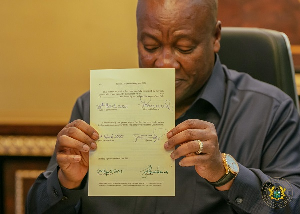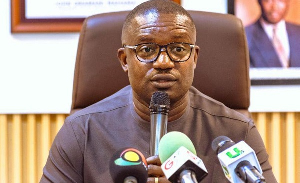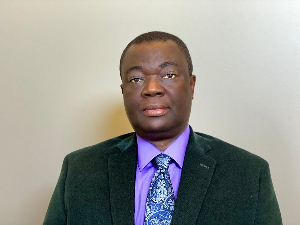Discerning Ghanaians massively voted the NPP government into power on 7th December 2016 at the backdrop of unbridled corruption and dereliction of duty by the outgone NDC government.
It is absolutely true that discerning Ghanaians found in NPP, a redeemer, in whom they reposed their absolute trust to set them free from the NDC government’s unpardonable economic enslavement.
Since assuming power, Akufo-Addo’s government has taken estimable strides to improve social mobility through poverty reduction policies such as free SHS, one district one factory, one million dollars per constituency, tax reductions, reasonable utility tariffs reductions, a dam per village in the northern part of Ghana, among others.
It is also worth pointing out that the Akufo-Addo’s government has dramatically reversed the inflation rate to around 9 per cent from a little over 15 per cent as of December 2016.
Despite the huge economic mess created by the outgone NDC government amid stunted economic growth, the Akufo-Addo’s government has efficiently raised the economic growth. Ghana’s economy grew provisionally by 8.5 percent in 2017 compared to 3.7 percent in 2016 (Ghana Statistical Service, 2018).
The Industry sector recorded the highest growth rate of 16.7 percent, followed by Agriculture 8.4 percent and the Services 4.3 percent.
Services share of GDP decreased from 56.8 percent in 2016 to 56.2 percent in 2017. The sector's growth rate also decreased from 5.7 percent in 2016 to 4.3 percent in 2017.
However, two of the subsectors in the services sector recorded double-digit growth rates, including Information and Communication 13.2 percent and Health and Social Work 14.4 percent.
The Industry sector, the highest growing sector with a GDP share of 25.5 percent, had its growth rate increasing from -0.5 percent in 2016 to 16.7 percent in 2017.
The Mining and Quarrying subsector recorded the highest growth of 46.7 percent in 2017.
The Agriculture sector expanded from a growth rate of 3.0 percent in 2016 to 8.4 percent in 2017. Its share of GDP, however, declined from 18.7 percent in 2016 to 18.3 percent in 2017. Crops remain the largest activity with a share of 14.2 percent of GDP.
The Non-Oil annual GDP growth rate decreased from 5.0 percent in 2016 to 4.9 percent in 2017. The 2017 Non-oil GDP for industry recorded a growth rate of 0.4 percent, compared with 4.9 percent in 2016. Growth in the fourth quarter of 2017 reached 8.1 percent compared to 9.7 percent in the third quarter (GNA, 2018).
Based on the current favourable economic outlook, we can confidently state that the economy is heading towards the right direction under the able leadership of President Akufo-Addo.
Regrettably, despite the prudent economic management of the NPP government, it would appear that some appointees who have been given the opportunity to serve in the Akufo-Addo’s administration are taking things for granted, judging from the unfortunate, albeit avoidable happenings at their work settings.
In as much as some of the allegations are a mere flimsy work of the lousy opposition, the appointees cannot and must not take things for granted by exposing themselves to tattle tales, who are ever ready to pounce on any frivolous issues regardless.
Let us face it, though, in the best interest of the NPP government, the appointing authority may have to put its foot down and do the unthinkable in the Ghanaian political landscape by dismissing the stubbornly impenitent appointees.
Why must an unrepentant appointee hold on to his/her position despite an admissible evidence of gross misconduct?
Whichever way you may view the issue under discussion, I am of the firm conviction that the right antidote for a possible attitudinal and behavioural change is to resort to stringent disciplinary measures.
The fact is, the appointing authority must not and cannot continue to spare the rod and thereby jeopardising the NPP’s bigger political project.
Disappointingly, some appointees are refusing to accept the fact that the NPP government does not have an absolute right to remain in power. Indeed, President Akufo-Addo and his appointees have to work towards their re-election.
It is true that the good people of Ghana voted the NDC government out of power in the 2016 general elections largely due to the presence of arrogance of power, wanton corruption and sheer negligence.
In that regard, we could draw an adverse inference that discerning Ghanaians will not forgive the NPP appointees if they failed to perform exceedingly better than the erstwhile NDC appointees.
Obviously, the NPP government does not have the God’s given right to remain in power, and could therefore be shown the exit by discerning Ghanaians if failed to deliver on its promises. That, indeed, does not require a superior mind on rocket science or transcendental powers to predict.
Given the circumstances, we can dare state that the Akufo-Addo’s government has no option than to deliver the goods and thereby transforming the lives of the teeming Ghanaians.
K. Badu, UK.
k.badu2011@gmail.com
Opinions of Friday, 25 May 2018
Columnist: Kwaku Badu















